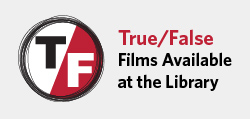 Not all challenged books are great literature, but many of them are. Not all challenged books are award-winning books, but many of them are. Not all challenged books are the right book for everyone, but they are almost certainly the right book for someone. And even a bad book can make a good point depending on how it’s approached.
Not all challenged books are great literature, but many of them are. Not all challenged books are award-winning books, but many of them are. Not all challenged books are the right book for everyone, but they are almost certainly the right book for someone. And even a bad book can make a good point depending on how it’s approached.
Banned Book Week is September 18-24 and this year’s theme is “Books Unite Us – Censorship Divides Us.” The American Library Association (ALA) began Banned Books Week in 1982 in response to a sudden surge in challenges to books in schools, stores and libraries.
It can be difficult to empathize with or find compassion for someone when you don’t know their story. It’s much harder to hate or harm someone when you know them and can empathize with and find compassion for them. Many book bans and challenges are aimed at vulnerable populations such as minorities, immigrants and the LGBTQ+ community. According to an article in The Publisher’s Weekly, there has been “a dramatic rise in book banning across the U.S.” which appears to be linked to a “backlash against the progress made toward diversifying children’s literature in the past 10 years.” In the words of Neil Gaiman, “Fiction gives us empathy: it puts us inside the minds of other people, gives us the gifts of seeing the world through their eyes. Fiction is a lie that tells us true things, over and over.” This year, I wanted to take a closer look at the authors who are often part of those same communities and their perspectives.
Maia Kobabe, the author of “Gender Queer” which is currently the number one challenged book in the US, actually came to Columbia’s Unbound Book Festival this past April to sit in on a panel about Banned Books. In eir interview with KBIA, ey said “a lot of why I wanted to write the book was actually to help me come out… I definitely did not have any book like ‘Gender Queer’ when I was a young person, and I could really have used one — especially when I was in high school.” Eir book is a personal memoir about coming out and coming to terms with being non-binary. In an interview with the New York Times, Kobabe said, “When you remove those books from the shelf or you challenge them publicly in a community, what you’re saying to any young person who identified with that narrative is, ‘We don’t want your story here’.”
As a young child, Angie Thomas was almost caught in the crossfire of a shooting in a neighborhood park. Her mother, who believes that she actually heard the shot that killed Medgar Evars in 1963, wanted better for her daughter and took her to the library, which became a refuge for her. Thomas’ book, “The Hate U Give,” which is currently number five in the top challenged books, is about a young Black girl who witnesses her friend’s death at the hands of the police. There is a great interview with Thomas by Leonard S. Marcus in the book, “You Can’t Say That: Writers for Young People Talk About Censorship, Free Expression, and the Stories They Have to Tell.” In it, Marcus asks Thomas about finding out that her book was being challenged. She said that it “felt like a personal attack, especially when I read the articles in which the school district called my book ‘filth.’ More so than attacking me, it felt like they were attacking the kids from my neighborhood, and other kids like them, and calling them filth.”
Challenging books and targeting authors can have real-world consequences. Salman Rushdie is an award-winning author who was born in India but went to school in Great Britain and has lived much of his life in the United States. His book, “Satanic Verses,” has been banned and/or challenged for over 30 years and he has been a tireless champion of free speech. He was recently attacked on stage as he was delivering a lecture in New York. He was stabbed multiple times and gravely wounded. In the book “Burn This Book” edited by Toni Morrison, Rushdie says “There are those that believe that persecution is good for writers. This is false.” We hope for his speedy recovery.
If you would like to explore some of the books being challenged, you can check out this list. You’re sure to find some old favorites and possibly some new ones, too. You can also be an advocate against censorship by checking out PEN America (Poets, Essayist, and Novelists) and the American Library Association (ALA). Enjoy the freedom to read!


